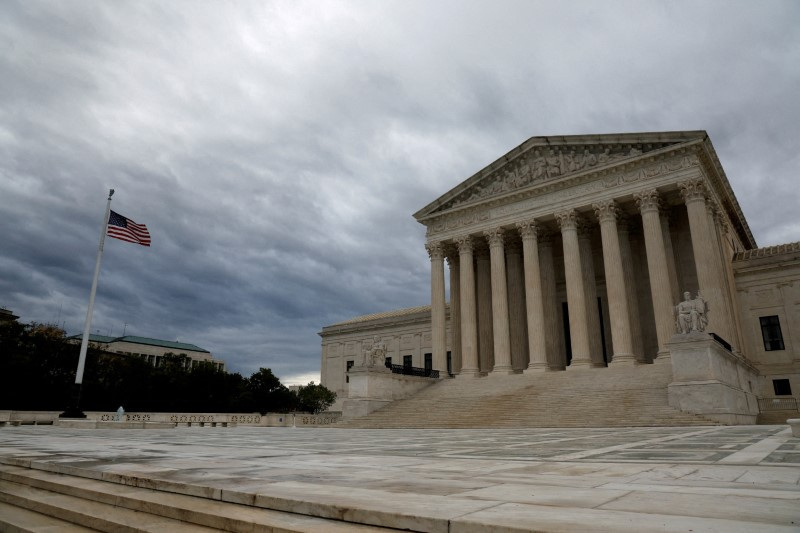By Andrew Chung
(Reuters) - The U.S. Supreme Court on Monday agreed to hear President Joe Biden's appeal of a judge's ruling that found his plan to cancel billions of dollars in student debt unlawful, taking up the matter alongside another challenge to the policy that the justices are due to hear in the coming months.
The justices will consider the Biden administration's appeal of Texas-based U.S. District Judge Mark Pittman's decision in a challenge backed by a conservative advocacy group, the second of two rulings by lower courts that have put Biden's debt relief policy on ice.
The Supreme Court on Dec. 1 said it would hear arguments on the legality of the debt relief program in the other case pursued by six mostly Republican-led states.
The justices fast-tracked both cases for oral arguments in late February or early March, with a ruling due by the end of June.
Pittman issued his ruling on Nov. 10. The St. Louis-based 8th U.S. Circuit Court of Appeals issued its injunction on Nov. 14 in a lawsuit in which Arkansas, Iowa, Kansas, Missouri, Nebraska and South Carolina have argued that the administration overstepped its authority.
Biden announced in August that the U.S. government would forgive up to $10,000 in student loan debt for borrowers making less than $125,000 a year, or $250,000 for married couples. Students who received Pell Grants to benefit lower-income college students would have up to $20,000 of their debt canceled.
The Congressional Budget Office in September calculated that the debt forgiveness program would cost taxpayers about $400 billion.

The Texas lawsuit was filed by two borrowers who were partially or fully ineligible for the loan forgiveness, backed by the Job Creators Network Foundation, a conservative advocacy group founded by Bernie Marcus, a co-founder of Home Depot Inc (NYSE:HD).
Pittman, appointed as a judge by Republican former President Donald Trump, ruled that the administration overstepped its authority to order debt cancellation under a 2003 law called the Higher Education Relief Opportunities for Students Act, which can "waive or modify" student financial assistance during war or national emergency.